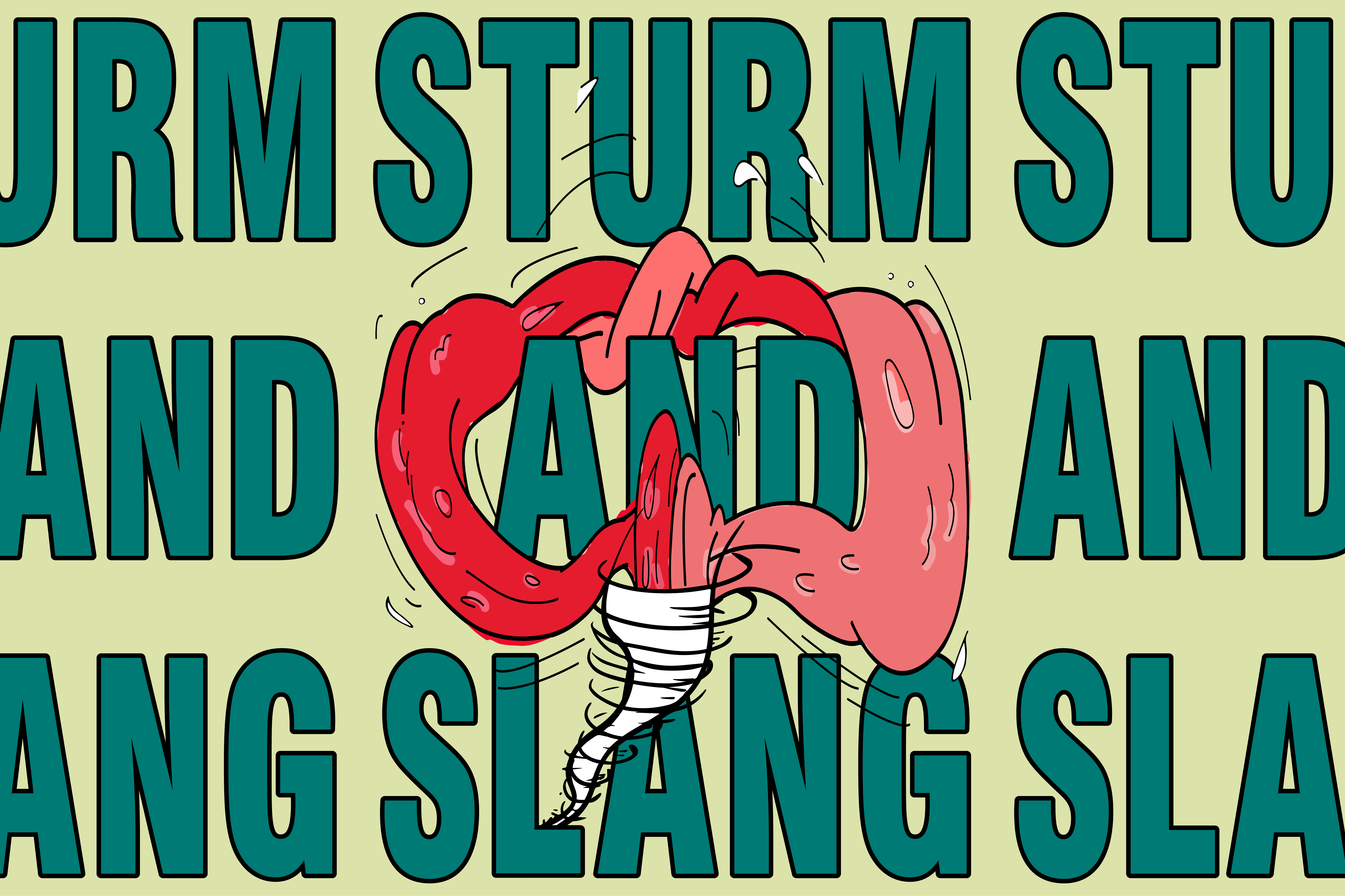
STURM AND SLANG: Annual Program 2024
Throughout history, language has been systematically used as a weapon to assert control and delegitimize belonging: without enough regard to its empowering and liberating potential. By exploring language affects specific to artists, poets, writers and activists, Sturm and Slang intends to illuminate the various processes of adaptation, evolution, and hybridization–from slang to queer linguistics–amidst great geopolitical changes and cultural upheavals. The spring-fall 2024 program at Pickle Bar takes a closer look at the transformation and disruption of languages as a means of forging new ways of being and identity in Eastern Europe, the Caucasus, the Middle East, the Baltics and Central Asia and their significant diaspora communities. A series of performances, lectures, round tables and workshop investigates the spaces for inclusivity and linguistic affinities from acoustic, visual and semantic perspectives to celebrate and redeem the necessarily fluid nature of language as an agency of self-determination and empowerment.
Curators (Slavs and Tatars): Patricia Couvet, Anastasia Marukhina
The program is supported by Haupstadtkulturfunds.
Mina Masoumi, work on display
23 March, 7:30 PM: Opening of the program, Nino Dava, “ეთი - Leti”, music-performance
12 April, 7:30 PM : Diliara Brileva, “Alternative Women's Discourse in Tatar Satirical Magazines in Late Imperial Russia”, lecture
26 April, 7:30 PM : Urok Shirhan, “Arabic Letter Seen س Arabic Letter Wow و”, lecture-performance
31 May, 7:30 PM and 9 PM: Hussein Nassereddine, “Laughing on the River, Your Eyes Drown in Tears”, performance
7 June, 7:30 PM: Yevheniia Moliar, Zhenia Stepko, Vova Vorotniov, “Surzhrealism”, panel discussion.
13 June, 7:30 PM: Daniel Kotowski, “delighting”, performance
27 June, 7:30 PM: Natalia Papaeva, Agnieszka Matkowska, Tudebei Khandama, Timur Zolotoev, panel discussion
12 July, 7:30 PM: Fatma Cheffi, “Steal, Steel, Still Fatma”, performance and discussion.
13 September, 7:30 PM and 08:30 PM: Agnė Jokšė, “Lezbynai”, performance
4 October, 7:30 PM: Mila Panić, stand-up comedy
11 October: Qalqalah قلقلة, workshop
8 November: Mekhitar Garabedian, Garine Gokceyan, workshop
![]() STURM AND SLANG: Mina Masoumi, work on display at Pickle Bar
STURM AND SLANG: Mina Masoumi, work on display at Pickle Bar
Displayed at Pickle Bar during the Sturm and Slang program, the artwork "On Manners of Dance and Ecstasy" by calligraphy and visual artist Mina Masoumi intricately weaves the words of the title in Farsi script. At its center, "در آداب" (on manners) serves as the introduction, guiding the eye through the intricate of the letters composing the words "رقص" (dance) and "طرب" (ecstasy), which spiral around it like a complex knot. This movement symbolizes the hands of a dancer entwined in the rhythm of music, shimmering together to intertwine the visual and auditory essence of the words.
Mina Masoumi lives and works in Tehran. She is a graduate of Persian Literature from Zanjan University, and holds two Mumtaz-level excellence degrees in Nastaliq and Shekasteh- Nastaliq from the Society of Iranian Calligraphists. Masoumi's visual and semantic references are intertwined with classic and contemporary Persian literature, Iranian and Islamic architecture and Miniature and Middle-eastern culture, as well as a deep connection with the inner workings of modern image processing devices. She establishes a unique relationship between sounds of the words, their forms, and the narratives of the image. She is represented by Delgosha Gallery.
photo by Mari Kalabegashvili
The presentation is made possible the kind help of Shabahng Tayyari, Delgosha Gallery.
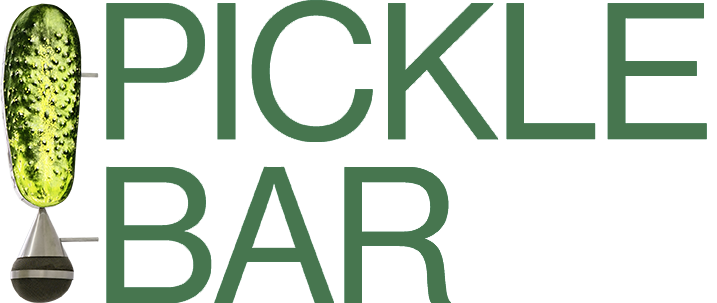


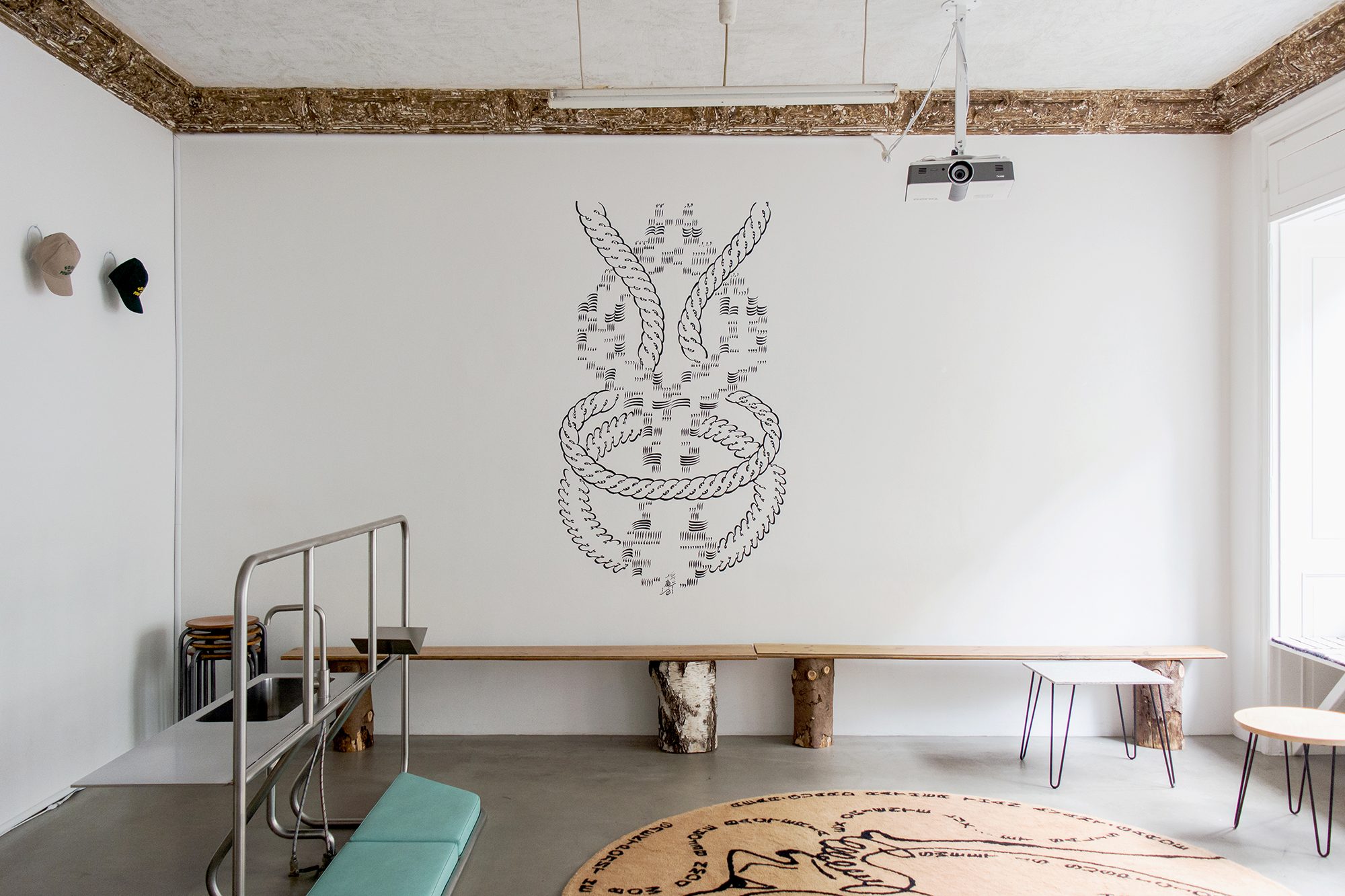 Work on display: Mina Masouni
Work on display: Mina Masouni 23 March, 7:30 PM: Opening of the program, Nino Davadze, - DAVA, ეთი - Leti, sound-performance
23 March, 7:30 PM: Opening of the program, Nino Davadze, - DAVA, ეთი - Leti, sound-performance 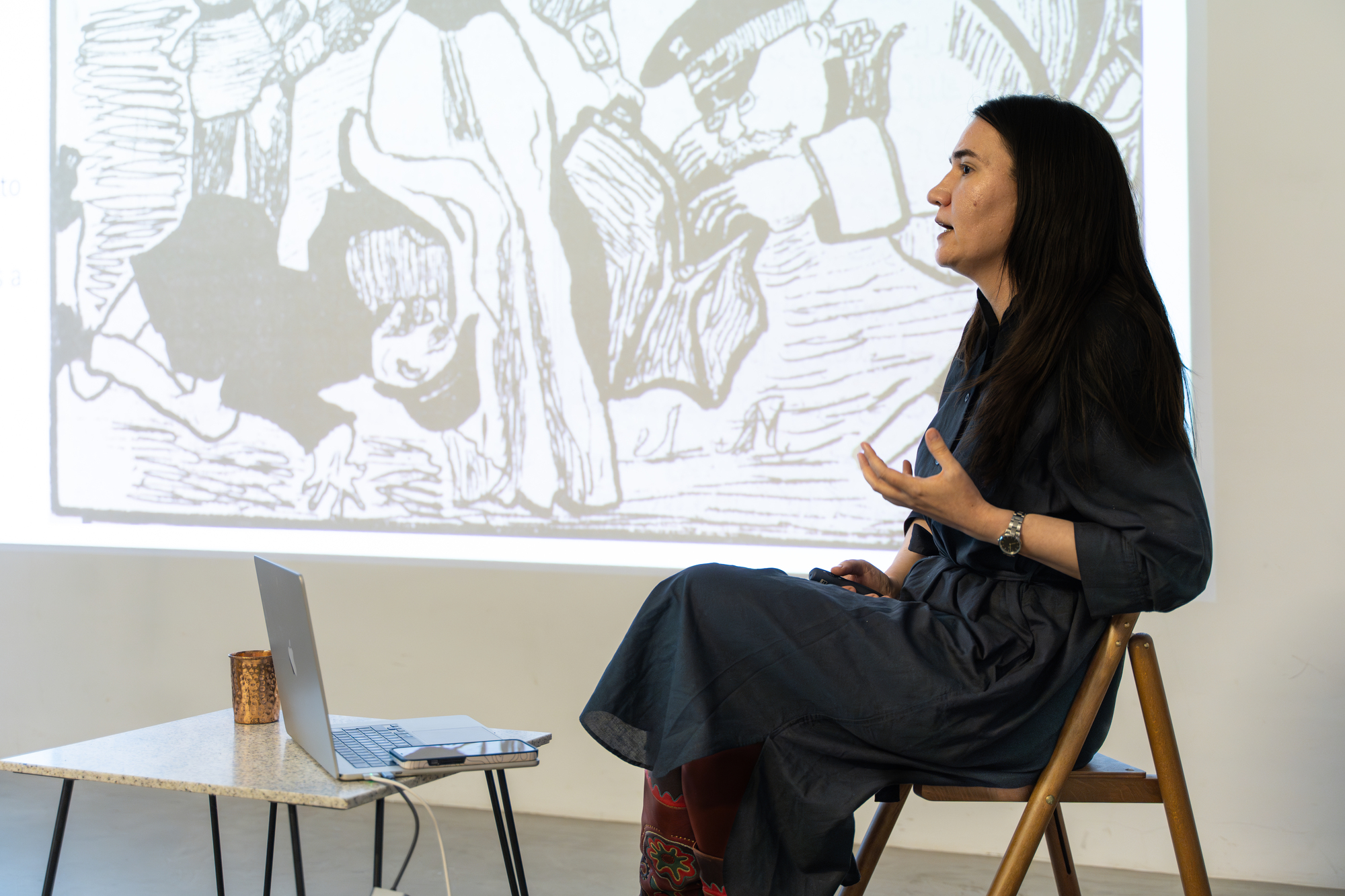 12 April, 7:30 PM: Diliara Brileva, “Alternative Women's Discourse in Tatar Satirical Magazines in Late Imperial Russia”, lecture
12 April, 7:30 PM: Diliara Brileva, “Alternative Women's Discourse in Tatar Satirical Magazines in Late Imperial Russia”, lecture 

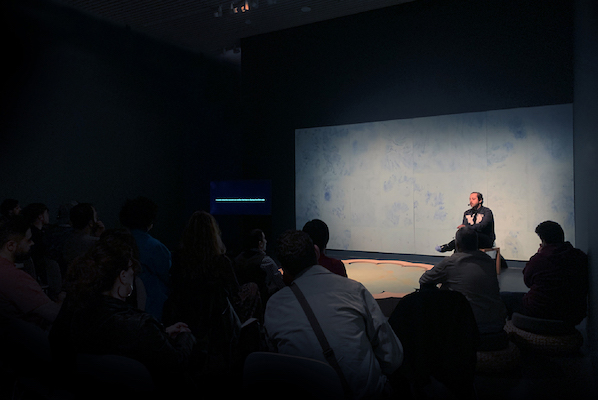
 13 June, 7:30 PM: Daniel Kotowski, “delighting”, performance
13 June, 7:30 PM: Daniel Kotowski, “delighting”, performance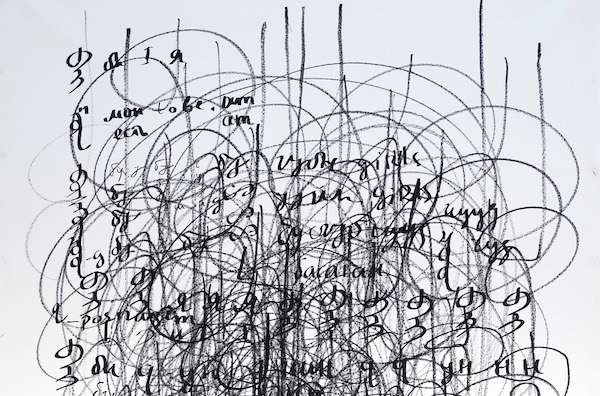

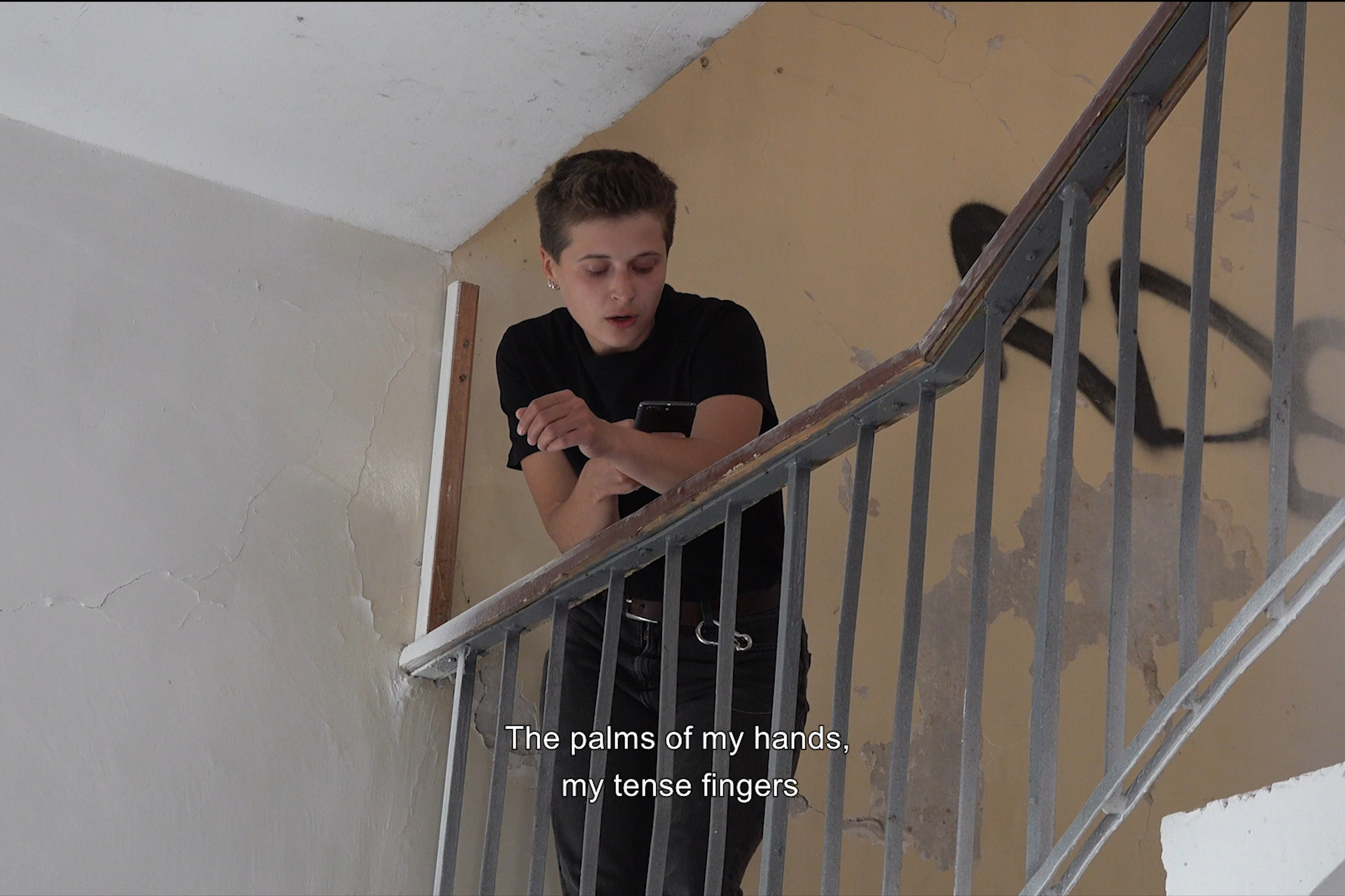

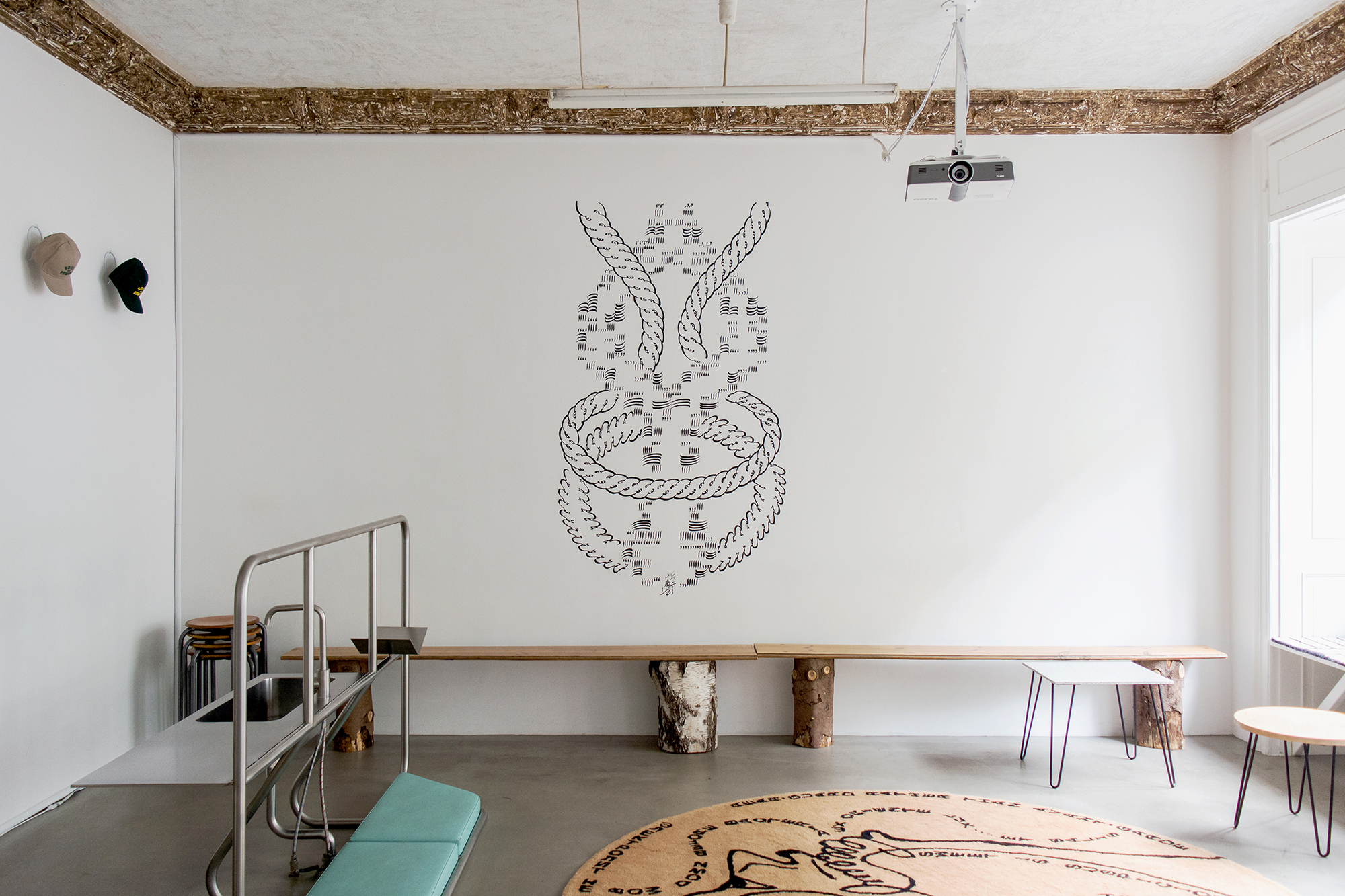 STURM AND SLANG: Mina Masoumi, work on display at Pickle Bar
STURM AND SLANG: Mina Masoumi, work on display at Pickle Bar 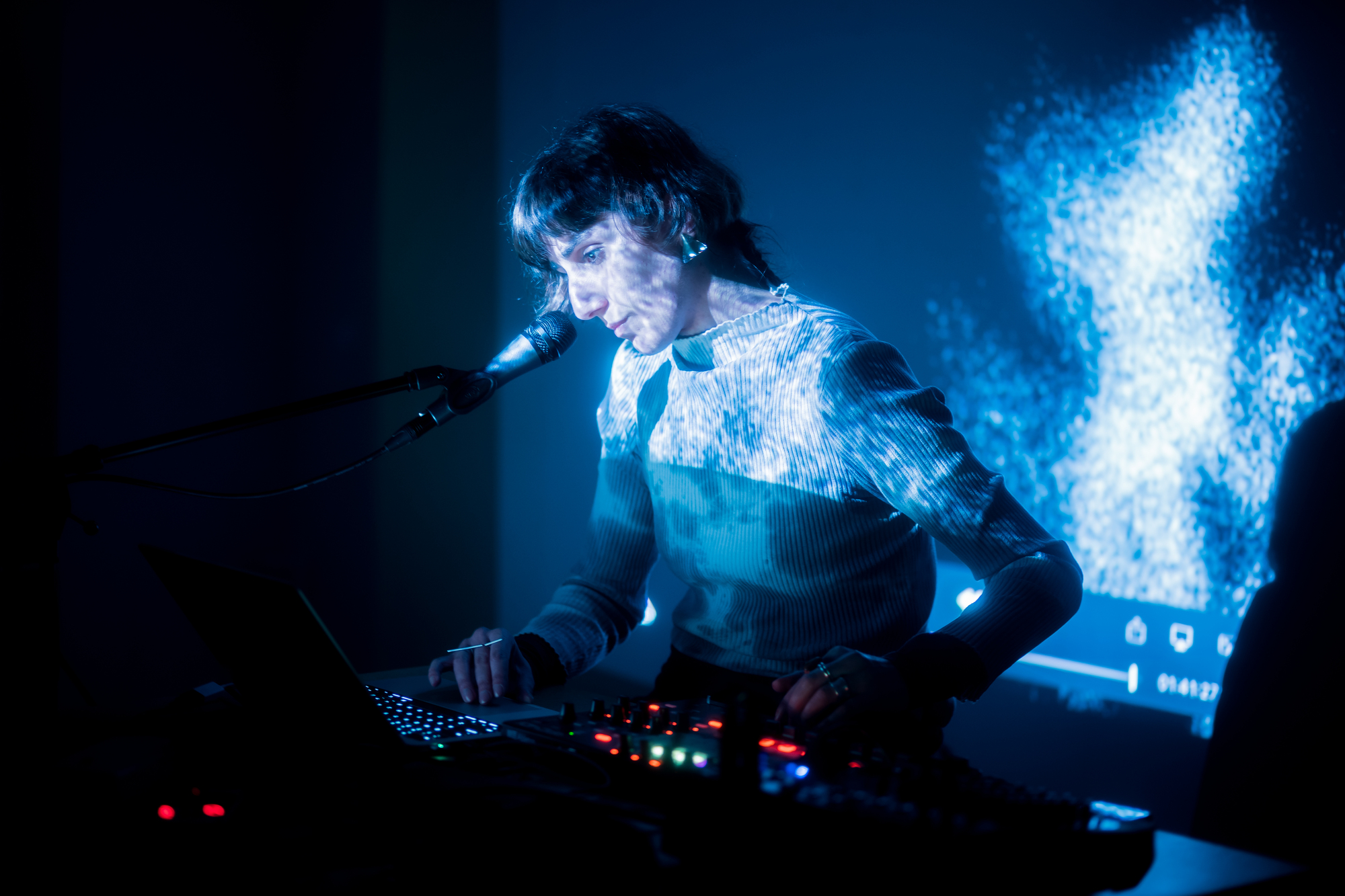 STURM AND SLANG: Opening of the program, NINO DAVA, “Leti - ლეთი”, Music Performance
STURM AND SLANG: Opening of the program, NINO DAVA, “Leti - ლეთი”, Music Performance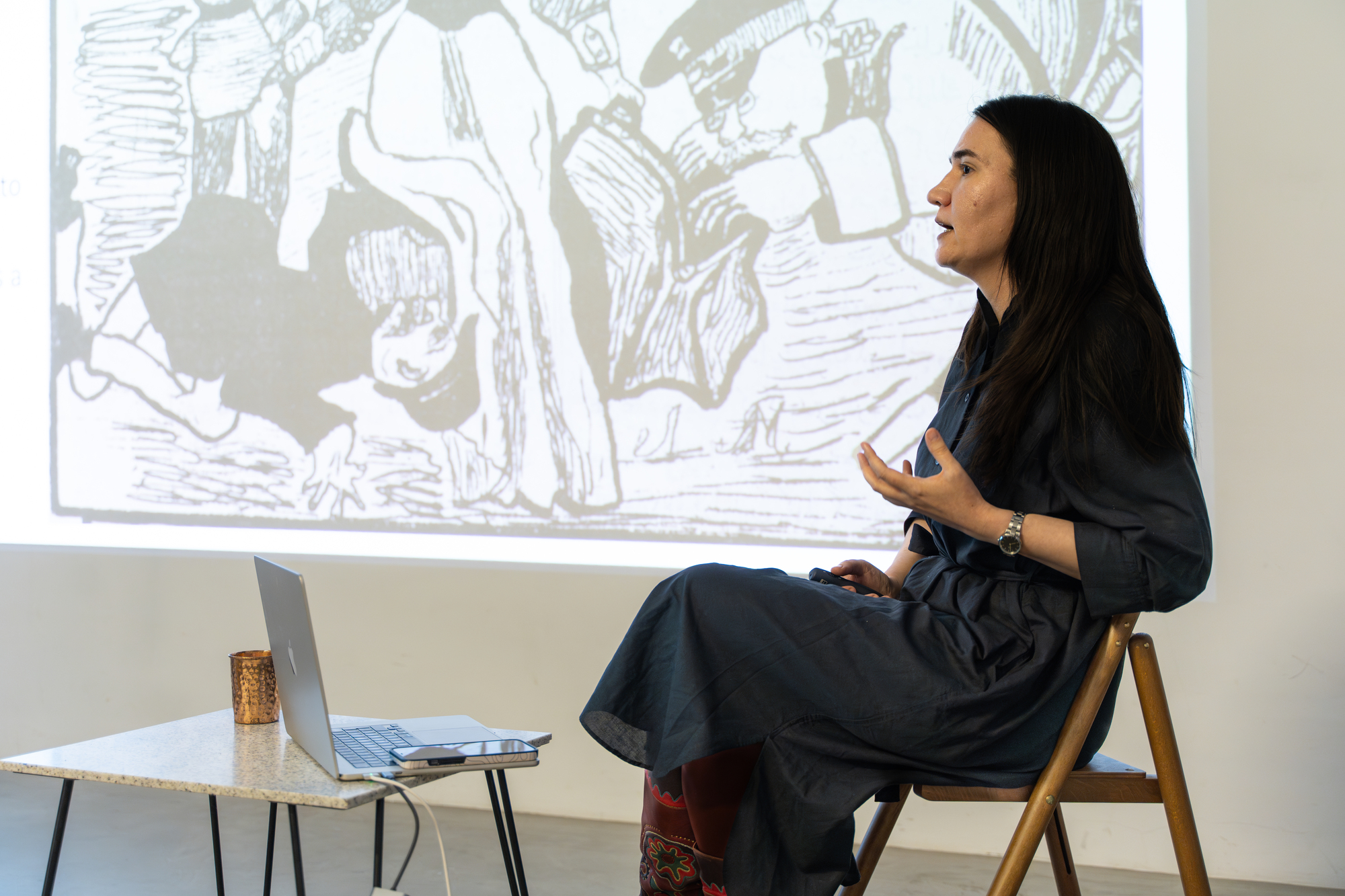 STURM AND SLANG: Diliara Brileva, Alternative Women’s Discourse in Tatar Satirical Magazines in Late Imperial Russia, Lecture
STURM AND SLANG: Diliara Brileva, Alternative Women’s Discourse in Tatar Satirical Magazines in Late Imperial Russia, Lecture